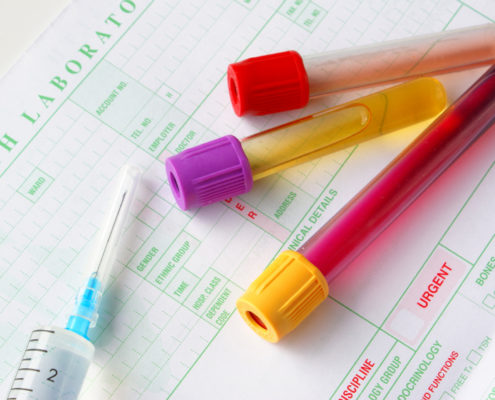BRCA Testing

BRCA 1 and BRCA 2 are genes that suppress tumor growth. If you have a mutation in either of these genes, you have an increased risk of developing breast and ovarian cancer. For example, a mutation in BRCA 1 is associated with a 60% chance of breast cancer and 40% chance of ovarian cancer. However, the BRCA mutations only account for 5-10% of all breast cancers.
Genetic testing for the BRCA mutations can be done with a blood or saliva sample. Your doctor can discuss your family history to see if you are a candidate for BRCA testing. The test is usually done for women who have:
- A personal history of breast or ovarian cancer
- A first-degree relative with breast cancer before age 50
- A family history of male breast cancer
- A family history of ovarian cancer
- More than two relatives with breast cancer
BRCA testing is often covered by insurance but every plan is different. If you think you could benefit from testing, your insurance company will let you know if this is a covered benefit.


